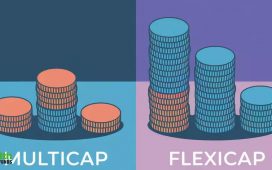But is it worth adding gold to a portfolio?
What is driving the gold price now?
Although gold is seen as a form of protection for investors, it competes with other assets.
When interest rates are high and rising, some investors are minded to sell gold – which pays no interest – and buy assets that do.
At these times higher yields available in bonds, property or even shares will tend to represent more appealing options, as do higher interest rates on cash.
However, as investors look towards interest rate falls, as perhaps they are doing now, they may envisage a period where they are subsiding faster than falls in the rate of inflation, which traditionally creates a better environment for bullion.
Market Movers Blog: Gold price hits record high
Gold also tends to struggle when the US dollar is strong.
Bullion is priced in the US currency and a buoyant greenback tends to dampen buyers’ enthusiasm, especially in emerging markets where there is significant jewellery consumption.
The dollar has been robust as interest rate expectations gathered pace earlier in the year, but if it now starts receding that could create a better environment for gold.
Longer term, the prospect of interest rates falling as inflation comes into line, continued strong central bank buying and the potential for greater geopolitical instability could be positive factors for the gold price.
This makes it a useful diversifier in a world where many financial assets are correlated – i.e. they have a tendency to move up and down with one another.
However, gold is still vulnerable to the increasing competitiveness of returns on other financial assets if interest rates remain higher than currently supposed.
Why buy gold?
It is often said investing in gold helps fight inflation.
In contrast to paper currencies such as the pound or the dollar, which can lose their spending power over time as more are created, there is a finite supply of gold. Only a small amount is added to supply each year from mining.
For ‘goldbugs’, it therefore represents an independent currency that cannot be debased.
For a millennia, gold has been mankind’s readily accepted currency, and only in recent human history has it become an alternative asset. Previously, gold was money.
When measured in decades, gold has done a reasonable job in keeping up with rising prices, but in the short term the price can be very volatile.
Although gold is sometimes said to be a ‘safe haven’ asset because investors often flock to it in times of crisis, the short and medium-term ups and downs can mean anything but.
This is why investors generally limit exposure to a very small part of portfolios.
Options for buying gold
Gold is an inflation hedge in the long term but not the short term.
Other factors such as sentiment play a much bigger role month to month or year to year, but the consequent moves can look like blips when you zoom out to a multi decade timescale.
Investors buying gold for an inflation hedge for short periods are therefore often left disappointed.
On balance, it is worth considering bit of exposure to gold as a ‘real’ asset with wealth preservation characteristics, but bear in mind it will likely be frustrating asset to own with extended periods in the wilderness.
Some gold investors like to buy coins or bars, but this is unlikely to be a viable option for most people due to storage and insurance requirements.
Fortunately, there are convenient ways to add gold to a portfolio such as an exchange traded product.
BlackRock’s Olivia Markham: Gold fever
We tend to prefer ‘physically-backed’ ETCs (exchange traded commodities) which own gold kept securely in a vault, as opposed to derivatives-based funds where there can be some added risk and complexity. One example is iShares Physical Gold.
A higher risk route into gold is through shares in gold mining companies. These tend to represent a ‘geared’ play on the gold price, meaning they multiply the effect of a rise – but also multiply any fall.
This is because profits can be highly sensitive to what the gold price is doing, and the riskier firms could even swing from profit to loss or vice versa on these moves.
One option here is Blackrock Gold & General. Managed by the well-regarded Blackrock’s Natural Resources team, it invests in gold and other precious metal-related companies on a worldwide basis.
The fund holds between 50 to 80 companies, the vast majority of which are established producers of gold, with exposure to pure exploration stocks (typically the riskiest in the area) relatively low compared with some of its peers.
Rob Morgan is chief investment analyst at Charles Stanley Direct











